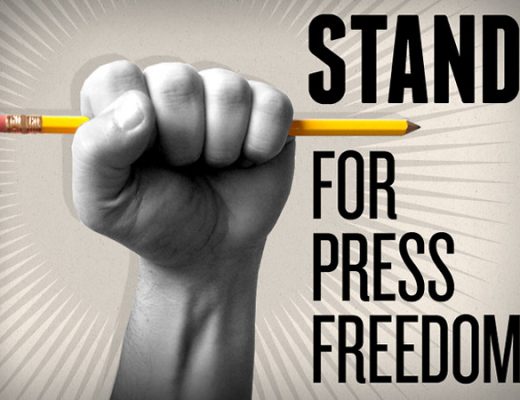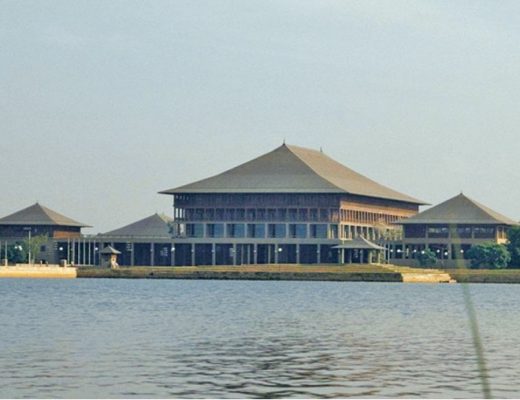In June 2022, the Sri Lankan Government declared a ‘four-day week’ for Public Sector workers for three months, except for the essential services. It started on Friday, June 17th, giving a holiday to public sector employees. Critical services are categorised as the public sector for employees in the health, water supply, power and energy, education, and security; such essential services were exempted from the regulation.
The decision to make the four-day week was not in line with the list of other countries in the world that are experimenting with a shorter week following the COVID-19 pandemic. In Sri Lanka, of course, it is due to fuel shortage in the country and to restrict the usage of fuel by millions of public service employees to cut down on the transport and other costs during commuting to work during this period of uncertainty.
When one considers essential services, one that comes to mind is whether the dollar earners were exempt from the urgent category, such as the textile trade workers.
On June 29th, on TV Derana, a few ‘factory workers’ (women) protested about fuel supplies. They maintain they are the only category of the major contributors in bringing dollars to the country. Their fear is about losing future contracts, which are in the pipeline. If they do not get adequate fuel to take the finished orders to the airport or harbour for completed export purposes, supplies cannot ship to the appropriate countries within the time frame that the importers have. Such a situation would be going to affect their lives amidst such distress and pain they undergo at present
Shorter working hours
When Sri Lankans go abroad on work permits to European countries or for labour work in the Middle-Eastern countries, they have to work endlessly with only ten minutes on a tea break and a one-hour lunch break. They are prepared to engage in any ‘unworthy’ job as they need weekly wages to live. But when they return to Sri Lanka, they tend to relax and take a negative attitude, which is very strange. Does it mean their supervisors are not strict enough to discipline the workforce? Same with politicians and Ministers of the Sri Lankan Cabinet; don’t they see enough development in foreign countries, but they do not execute what they experienced!
England has only eight public holidays: New Year’s Day, Good Friday, Easter Monday, May Day, Spring Bank Holiday, Summer Bank Holiday, Christmas Day and Boxing Day. Because of the Queens Platinum Jubilee, the UK declared an extra bank holiday in 2022. In Sri Lanka, it is quite a different kettle of fish. The island nation is known to be a country with too many holidays. Every month there is Poya, and whenever a public holiday falls on a Sunday, Monday is declared a holiday; Sinhala New Year celebrations have more than a week’s holiday; then comes Vesak and Poson holidays. In addition, February 4th was declared a National Day. Others include Mahashiva Ratri, Deepavali and Eid-Ul– (Hadji Festival). There is hardly any time to concentrate on real work as there are 104 days, including weekends, for public servants. So how can a country progress?
Of course, the COVID-19 pandemic brought a change the world over with a different outlook entirely. People as well as Managements were affected by their economies. The UK has become the leader in accepting this new pattern of shorter week. Generally, approximately three thousand three hundred employees commenced working on a four-day week without losing their salaries. But they are supposed to work from home. Working from home is not the same as working from an office. One tends to relax much more in a home environment unless one does perform sincere work, and it depends on the responsibility one carries on behalf of the institution he works.
Essential Services
A TV showed a sample of ‘Textile factory workers’ protesting on fuel supplies. They maintain they are one of the significant contributors to bringing dollars to the country. When one considers essential services, straightway that comes to mind is whether the dollar earners to Sri Lanka are exempt from this category? Suppose they do not get adequate fuel to take the finished stocks to the airport or harbour, which delays shipment to the appropriate countries, there is a likelihood of losing future contracts in the pipeline, affecting their jobs in the present scenario.
There is a discrepancy in the Sri Lankan Government’s proposals for a four-day week. The Minister of Public Admiration stated that the idea was to implement a shorter week due to the current fuel crisis. However, the Department of Government Information had to come out with a Cabinet Decision, which declared that ‘ Public Sector employees to engage in agricultural activities in their gardens to eliminate a food shortage that is expected soon. That coincides with the Prime Minister’s warning of an acute food shortage by August 2022 unless Sri Lanka receives US$ 600 (Six hundred million) to import fertiliser for the next Kanne. The Prime Minister gave this briefing to the representatives of the FAO.
The Sri Lanka Government’s controversial decision to ban poisonous agrochemicals in Sri Lanka was a terrible mistake as it caused lower yields of staple diets of Sri Lankans, such as rice and vegetables. No public servant has been trained or given the basics of growing systematically in their gardens before declaring a shorter week. How can public service employees manage home gardening without understanding when even the farmers have not received formal training in fertiliser use?
 ‘Api Wawamu’ was supposed to be the latest campaign across the country. Still, a campaign named Api Wawamu- Rata Nagamu was launched under the Ministry of Agriculture’s Development programme in 2011 and allocated Rs. 1,858.5 million from 2008 -2009 – 2010, and 2011 a total of 34.2 million has been used on Api Wawamu-Rata Nagamu on publicity campaigns.
‘Api Wawamu’ was supposed to be the latest campaign across the country. Still, a campaign named Api Wawamu- Rata Nagamu was launched under the Ministry of Agriculture’s Development programme in 2011 and allocated Rs. 1,858.5 million from 2008 -2009 – 2010, and 2011 a total of 34.2 million has been used on Api Wawamu-Rata Nagamu on publicity campaigns.
It is not a new theme to propagate home gardening projects throughout the country. Expecting a food scarcity in the future, as prominent learned people in Sri Lanka say, makes people hoard essentials unnecessarily, which causes supermarkets and Sathosa food lines to quickly become exhausted, akin to petrol, diesel and kerosene hoarders. But there is no way of detecting how the public stockpiles essential food items unnecessarily.
Picture Credit: Daily News






